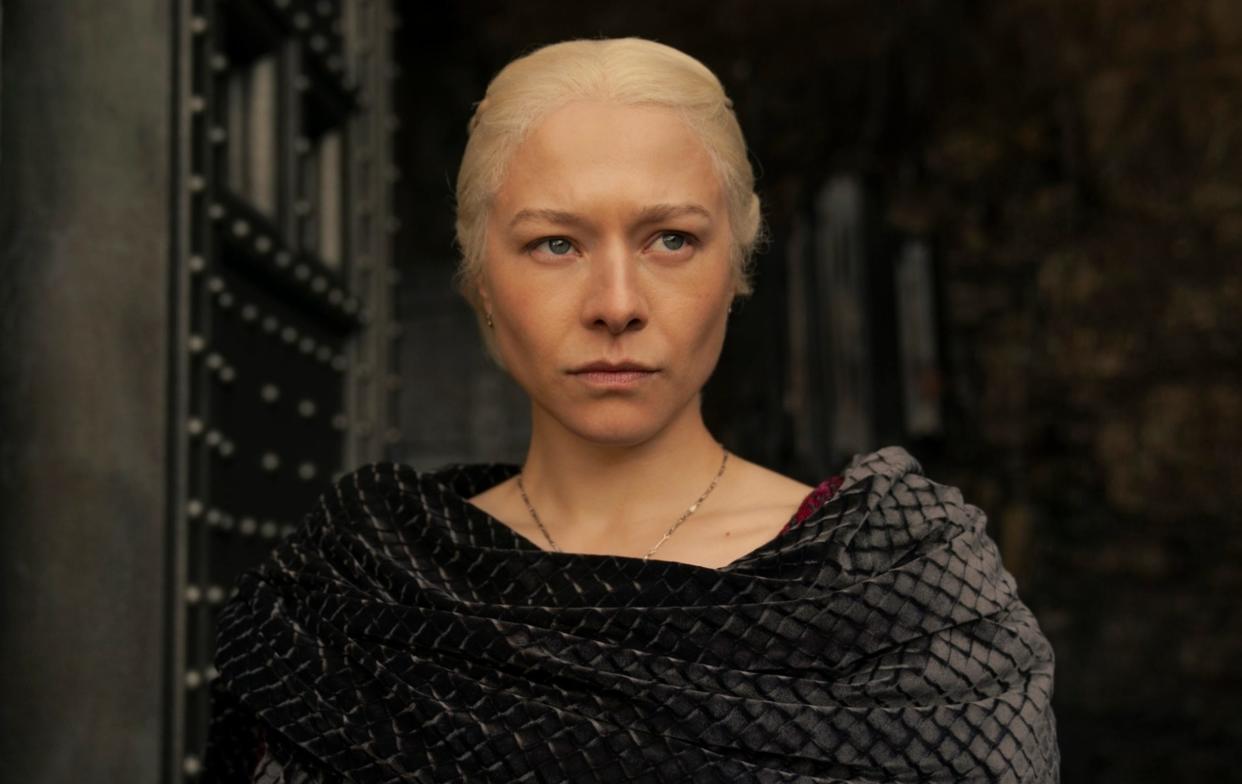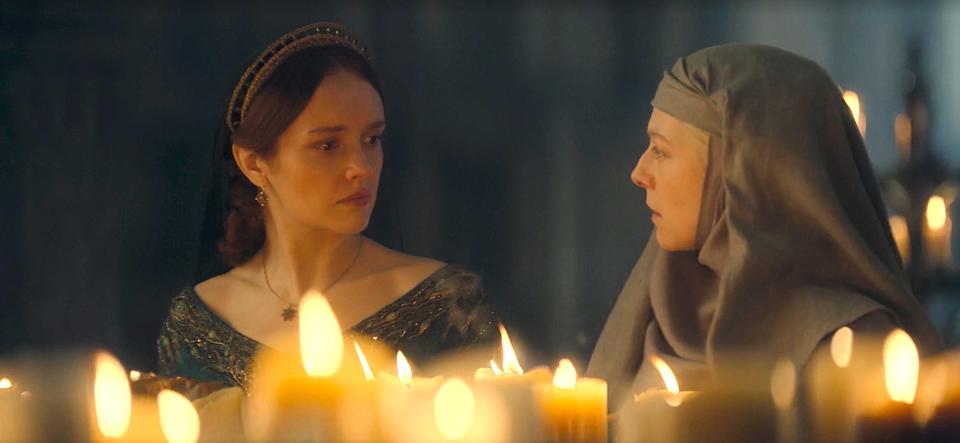What's the deal with the Song of Ice and Fire prophecy in 'House of the Dragon'?

The Song of Ice and Fire prophecy is mentioned in "House of the Dragon" season two, episode three.
Rhaenyra Targaryen and Alicent Hightower discuss it in King's Landing.
The prophecy is a major connection between "House of the Dragon" and "Game of Thrones."
Rhaenyra Targaryen (Emma D'Arcy) and Alicent Hightower (Olivia Cooke) discuss the Song of Ice and Fire prophecy at the end of "House of the Dragon," season two, episode three — which is a major reference to "Game of Thrones."
During the episode, Rhaenyra grapples with the idea that neither Targaryen faction actually wants their stalemate to escalate into an all-out war, largely because it would lead to thousands of needless deaths — especially if the dragons get involved.
So she hatches a plan to meet with Alicent while she's praying at the Great Sept of Baelor to start peace talks. After briefly disguising herself to gain entrance into the church, she meets her former friend, and they discuss? what caused their divide: King Viserys (Paddy Considine).
Alicent explains that as Viserys was dying, he mentioned "Aegon" and described "the Prince that was promised."
From Alicent's perspective, she thought he was referring to her son Aegon (Tom Glynn-Carney) as the heir to the throne.
However, Rhaenyra quickly figures out that he was actually trying to talk to her about the Song of Ice and Fire. But why is that important?
The Song of Ice and Fire is a nod to "Game of Thrones"

The Song of Ice and Fire is a prophecy from King Aegon the Conqueror, who had a dream about an impending darkness that will threaten Westeros, and that a king or queen would take the Iron Throne and defeat the evil to save the world.
Aegon's prophecy was passed down from king to heir over several generations. Viserys told Rhaenyra about it back in the first season, because he recognized her as his true heir.
As anyone who has watched "Game of Thrones" will know, the growing darkness refers to the White Walkers and the hordes of the undead that they control.
By the end of the main series, it's revealed that Jon Snow (Kit Harington) is secretly a Targaryen, and his true name is Aegon — which is important because he's a key player in defeating the White Walkers.
There was also speculation that Daenerys Targaryen (Emilia Clarke) would be a version of the "prince who was promised," but she was unsuccessful in taking the Iron Throne for herself, and ultimately went mad with power by the end of the final season.
Referencing the "Song of Ice and Fire" doesn't mean that White Walkers are about to start showing up in "House of the Dragon," but it's a great way of connecting the prequel and the main show.
Because "Game of Thrones" is one of the biggest shows of all time, it's not surprising that HBO is developing other prequels and spinoffs, including "A Knight of the Seven Kingdoms."
So it's entirely possible that future projects might also build more history into Aegon's prophecy in the "Game of Thrones" timeline.
Read the original article on Business Insider


